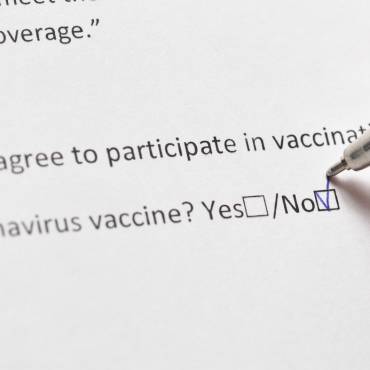Delhi will be part of the Indian Government’s plan to study one lakh infants so as to re-evaluate the effect of its indigenous vaccine against rotavirus gastroenteritis which was released earlier this month.
Also part of the study, which is slated to be among the largest for the vaccine, will be infants from Pune and Christian Medical College, Vellore.
“The vaccine has shown associated risk of intussusceptions, a condition that could cause bowel obstruction and may need surgical treatment,” said Dr. Jacob Puliyel, paediatrician at St. Stephen’s Hospital, Delhi. He has been advocating for safe vaccines.
Prime Minister Narendra Modi had on March 9 launched the rotavirus vaccine which was cleared for use after it was tested on 6,600-odd infants between 2006 and 2013. The Hyderabad-based Bharat Biotech is manufacturing the vaccine.
Gagandeep Kang, professor of infectious diseases at the Christian Medical College, Vellore, (who was part of the previous study) said that under the new study one lakh infants will receive three doses of the oral vaccine for a year so that the intussusceptions risk can be measured more precisely.
Meanwhile welcoming the move to re-evaluate the vaccine health experts have also demanded that the government should reveal the “exact number of cases which revealed/showed the vaccine-related risk of intussusceptions.”
Dr. Jacob Puliyel noted: “Peer reviewed journal Vaccine, published a letter written by me and a colleague, asking for disaggregated data on the number of intussusceptions in Vellore in the randomized control trial during the 2 year study period. The protestation of the authors that the vaccine is safe has little meaning if they do not provide the data. However, the data is not available in the papers published and the peer reviewer of Vaccine and the Editor of this international journal felt that it needs to be provided. Serious concerns are raised if safety data in a vaccine trial done with Government of India funding is not provided in spite of a call for it in an internationally indexed scientific journal.”
The Hindu also contacted those involved with the previous study for this specific detail and was told “the study is in public domain and has the percentage of children who indicated vaccine-related risk of intussusceptions,’’ but none of the members actually provided the exact number of children (from Delhi, Pune and Christian Medical College, Vellore) who demonstrate this adverse reaction to the vaccine.
Researchers involved in the clinical trials note that these concerns ‘have little relevance’.
Source: The Hindu, 30 March 2015

